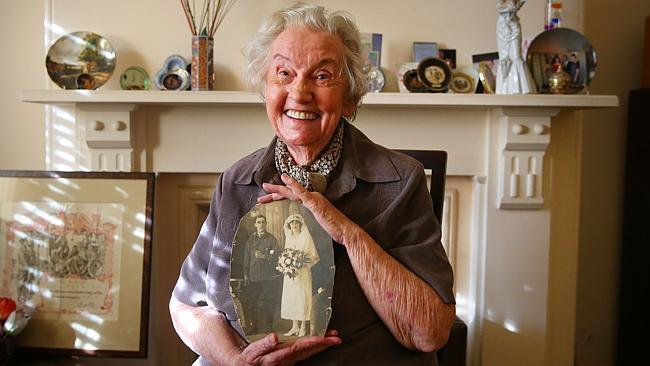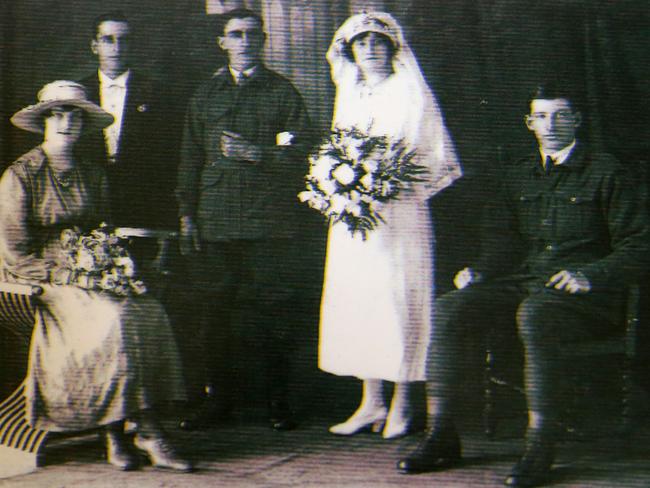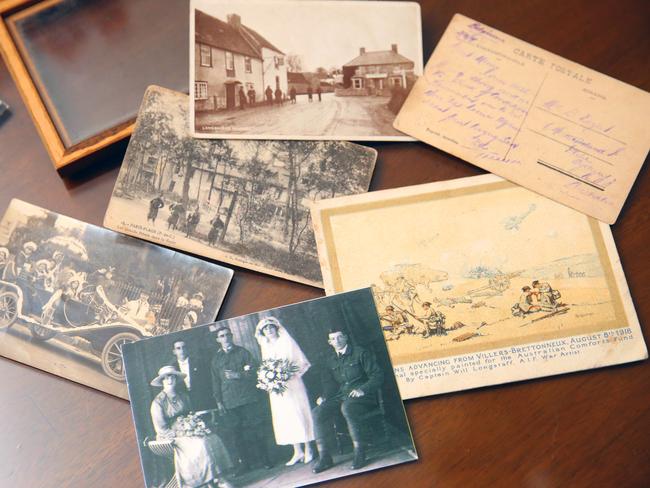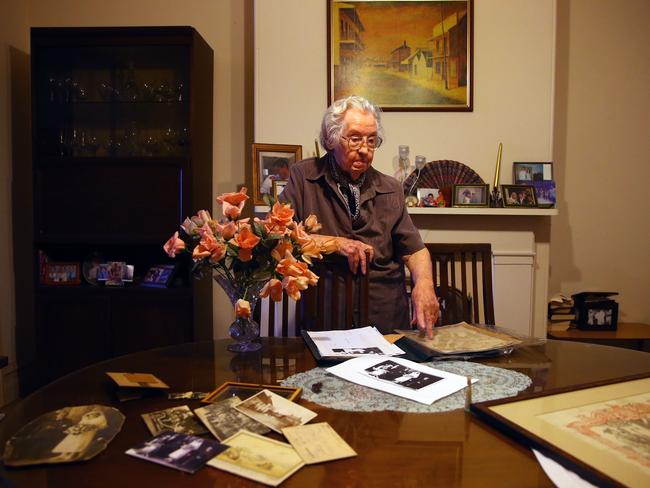Glebe resident talks about her father’s role in World War I
IN 93-year-old Noeline Reddie’s possession is a collection of postcards that keep the memory of our courageous Anzacs alive.

Inner West
Don't miss out on the headlines from Inner West. Followed categories will be added to My News.
IN 93-year-old Noeline Reddie’s possession is a collection of postcards that keep the memory of our courageous Anzacs alive.
The postcards were sent from the World War I battlefield by Edward Eager — Ms Reddie’s uncle — to her grandmother in Glebe.
“It wasn’t until my parents died that I found all these postcards,” Ms Reddie said.
“My mother had them all. She never ever took (the postcards) out and showed them to me when I was little.”
While only one postcard contains a personal message from Mr Eager, promising he will be home again soon, the others were signed by him.

Those postcards were either provided by the Australian Comfort Fund or picked up by Mr Eager himself.
“Where they were fighting, there were little towns in the area, and they would occasionally get in to town and buy a card,” Ms Reddie said.
Like many others of her generation, Ms Reddie had more than one family member serve in World War I.
Ms Reddie’s father, Reginald Jones, Mr Eager’s brother-in-law, also served. He lied about his age, saying he was 18 when he was 16.
“I was just proud of him when he used to tell me the things he did,” she said.

“He had a hard life, he came from a big family and they didn’t have much.”
Mr Jones would often tell his daughter of the action he saw fighting in France.
“When the fighting had stopped, two of them would have to get out with this canvas pull-along, like a stretcher, and on their stomachs, they would have to crawl across because they couldn’t stand up,” Ms Reddie said. “The snipers were waiting to see anyone coming out of the trenches. A few of them did get shot when they stood up.
“They would have to crawl out and if there was anyone alive, they would have to get them on the stretcher and crawl back on their stomachs and pull the stretcher with them.
“But (my father) said the snipers were waiting to see these men come up out of the trenches.
“They weren’t asked to go. They had to volunteer to go.
“He said, naturally they would all take turns and volunteer. You couldn’t let your mates go and you wouldn’t.”

Mr Jones and Mr Eager survived the war, to return to Australia. But for Mr Jones, the memories never left him.
“He wouldn’t watch the Anzac parade because he used get upset about it,” Ms Reddie said. “I think it brought back memories that he didn’t tell us about.”
Mr Jones did sign up for war again, serving on home soil during World War II. He lived until his late 80s.
Ms Reddie’s now deceased brother, also Reginald Jones, served in Vietnam.



